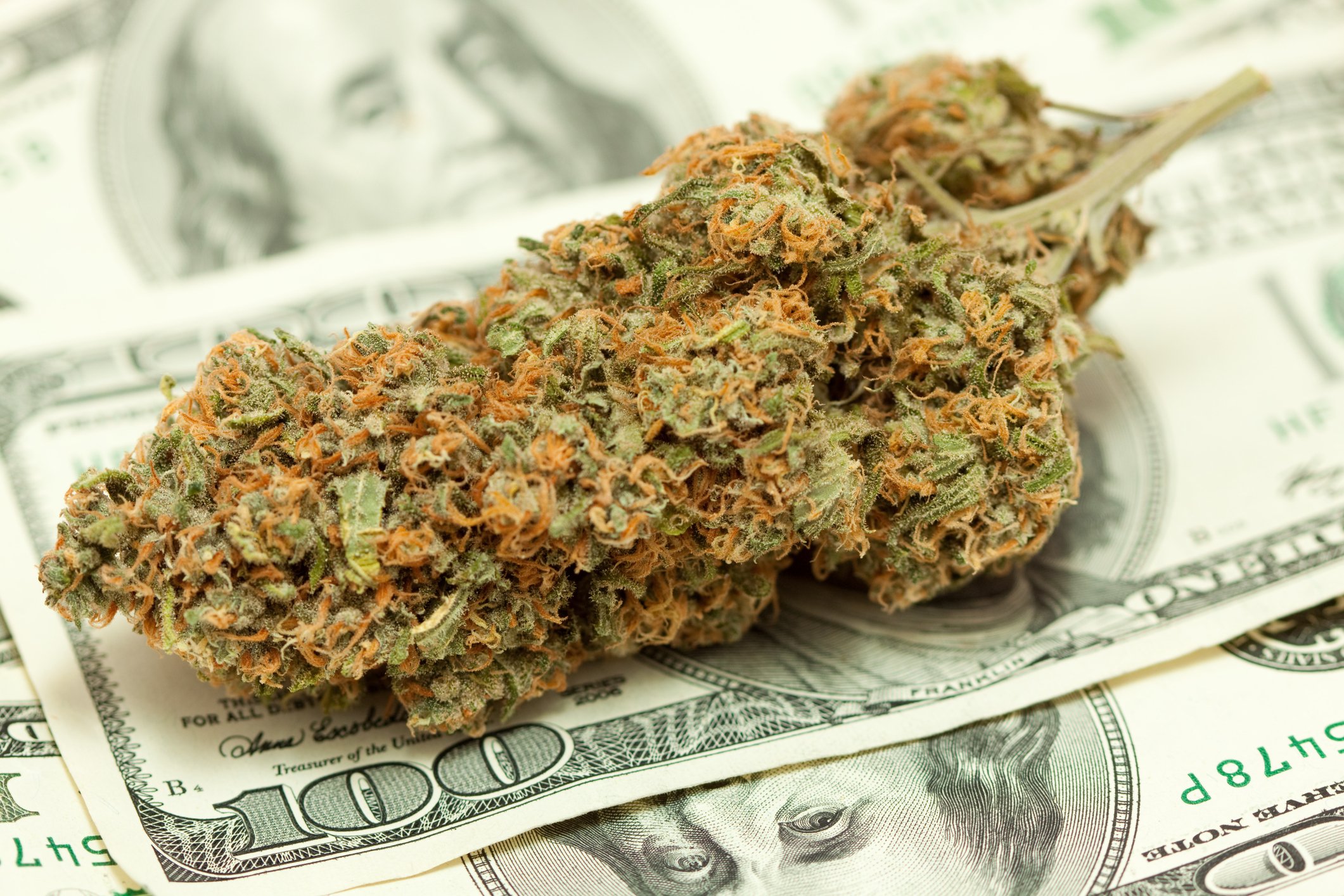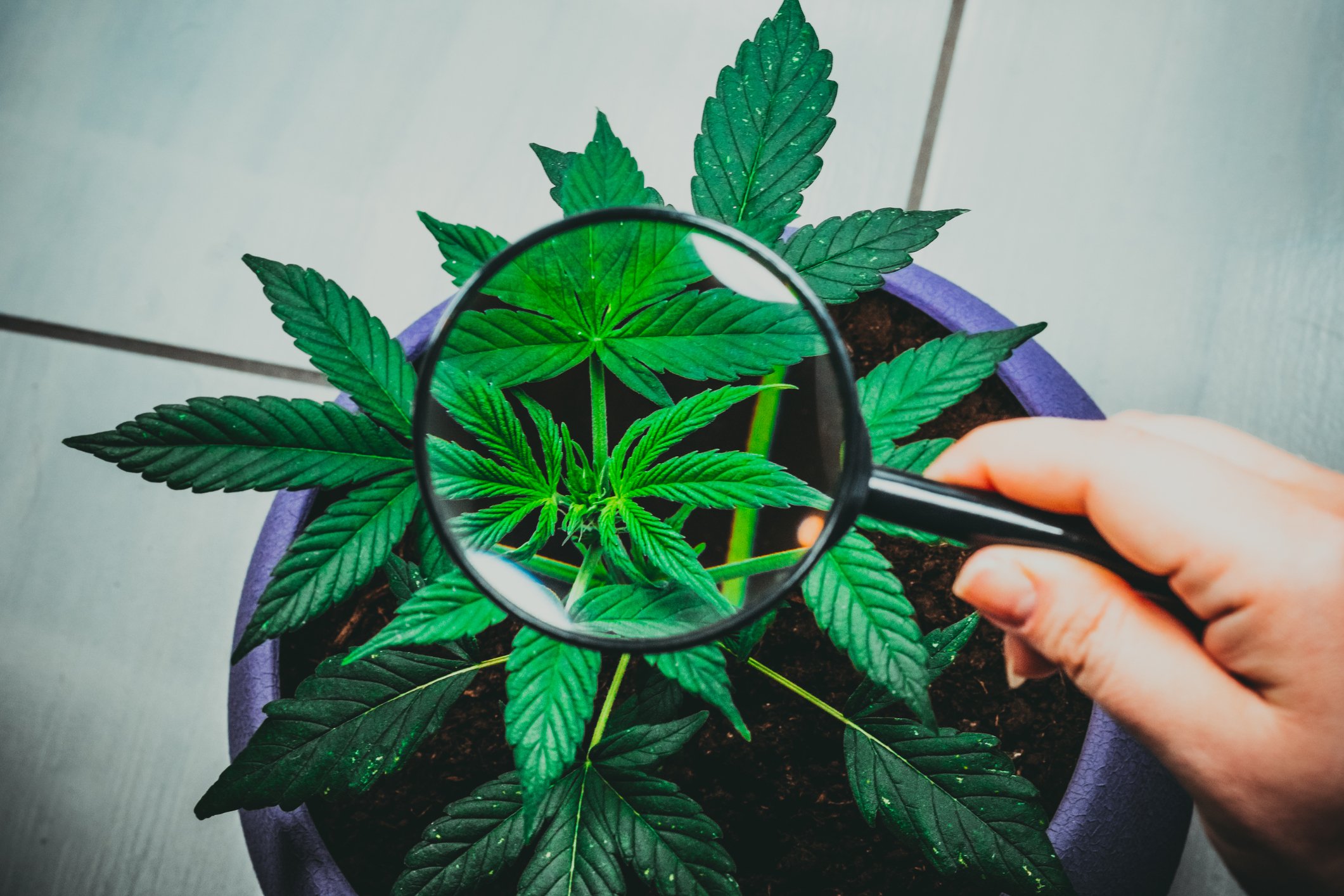The legal-marijuana industry is growing at an incredible pace, which is a big reason why investors seemingly can't get enough of pot stocks. According to Marijuana Business Daily's latest report, "Marijuana Business Factbook 2017," the U.S. legal-weed market is expected to grow by 30% in 2017, 45% next year, and an aggregate of 300% between 2016 and 2021, to around $17 billion.
A rapid change in the way the public views cannabis has been at the center of this rapid rise in sales. What was once deemed to be a dangerous drug is now viewed by a majority as a substance that should be legal nationally. An April 2017 CBS News poll found 61% support for legalizing marijuana nationally, which is more than double the support for the same idea back in 1979.

Image source: Getty Images.
The worst-performing weed stock dove once more
Because of this rapid growth, more marijuana stocks than not have doubled in value over the past year. But for the shareholders of one pot stock, there's been no champagne, and no reason to celebrate. Easily the worst-performing marijuana stock of the past year, Insys Therapeutics (INSY +0.00%) plunged once again last week, losing another 15% of its value.
There are no vagaries surrounding why Insys is struggling, either. It's Subsys, the company's synthetic opioid that's approved by the Food and Drug Administration (FDA) for the treatment of breakthrough cancer pain. In 2015, this oral medication brought in more than $330 million in sales. Today, those sales have been halved, and the decline hasn't showed signs of slowing as of yet.
The issue with Subsys ties into numerous lawsuits and allegations that the company was improperly, but knowingly, marketing Subsys at off-label indications. Since it's a synthetic opioid, allegations suggest that Insys was targeting physicians who regularly prescribe opioids. One damning figure implies that up to 80% of Insys' sales were for off-label use.

Image source: Getty Images.
As a result, Insys announced the week before last that it had settled a lawsuit with the attorney general of Massachusetts for $500,000. The company also noted that New Jersey's attorney general had filed charges against the company.
The issue here is twofold. First, lawsuits can take a long time to resolve and create a gray cloud that can hang over Insys for an extended period of time, thusly capping any upside. Secondly, there's no rhyme or reason when it comes to the financial penalties, or possible sales restrictions, Insys could face with Subsys moving forward. The market doesn't like uncertainty, and with the expectation of Subsys' sales falling further, Insys probably won't be profitable anytime soon.
Why giving up on Insys now could be a mistake
Despite Insys' recent woes, it may not be time to give up on the company just yet. Even with its lead drug ailing, the company recently launched a new drug that could pick up where Subsys' sales have tapered off. Additionally, it's filed a new drug application with the FDA to bring a third product to market.
In August, Insys launched Syndros after a very long wait. Syndros is its oral dronabinol solution, which is a synthetic form of tetrahydrocannabinol (THC), the psychoactive component of cannabis. This drug is approved to treat patients with chemotherapy-induced nausea and vomiting (CINV), as well as anorexia associated with AIDS.
Despite getting FDA approval in June 2016, Insys had to wait for the Drug Enforcement Agency to schedule the drug, and for the FDA to OK a marketing label. That wound up costing Insys an entire year.

Image source: Getty Images.
The good news is, in spite of a lot of competition in CINV, there aren't any drugs like Syndros on the market, which could make it a drug requested by consumers and physicians. As long as Insys plays things by the book in terms of marketing strategy, it should be able to generate more than $200 million in annual sales, which I believe is achievable by either 2020 or 2021.
The company also filed a new drug application for its sublingual buprenorphine spray on Sept. 29. This represents another drug to treat moderate-to-severe acute pain, and if approved, it would enter a fairly crowded and highly regulated market. Nonetheless, we can't overlook the strength of diversifying its portfolio with approved products. Adding a buprenorphine sublingual spray would only be a positive for its top and bottom lines.
If Insys succeeds in stabilizing Subsys' sales -- even if it's below $100 million in annual sales -- if it effectively launches Syndros, and if the FDA approves its buprenorphine spray, $300 million in sales, give or take $50 million, and around $1 in full-year earnings per share is a genuine possibility by 2020. There are clear risks here, given the financial uncertainty surrounding Subsys, but the valuation of the company is really starting to look intriguing to this investor.






